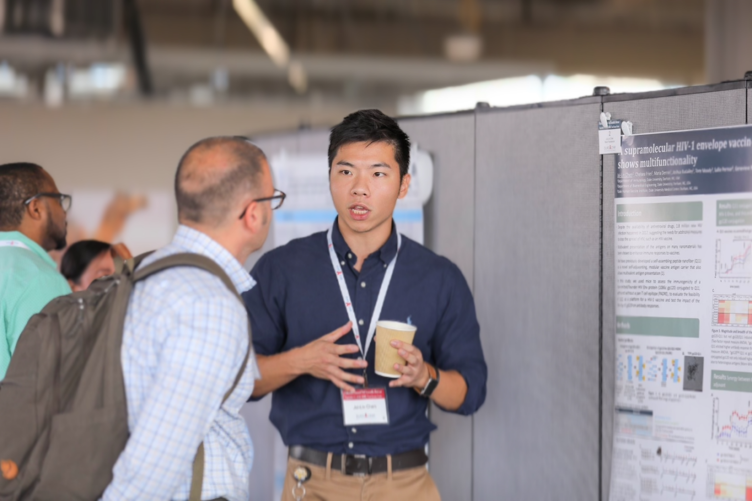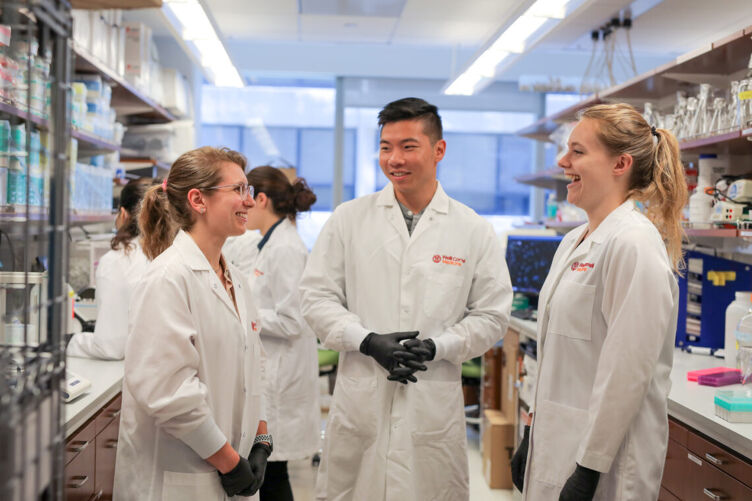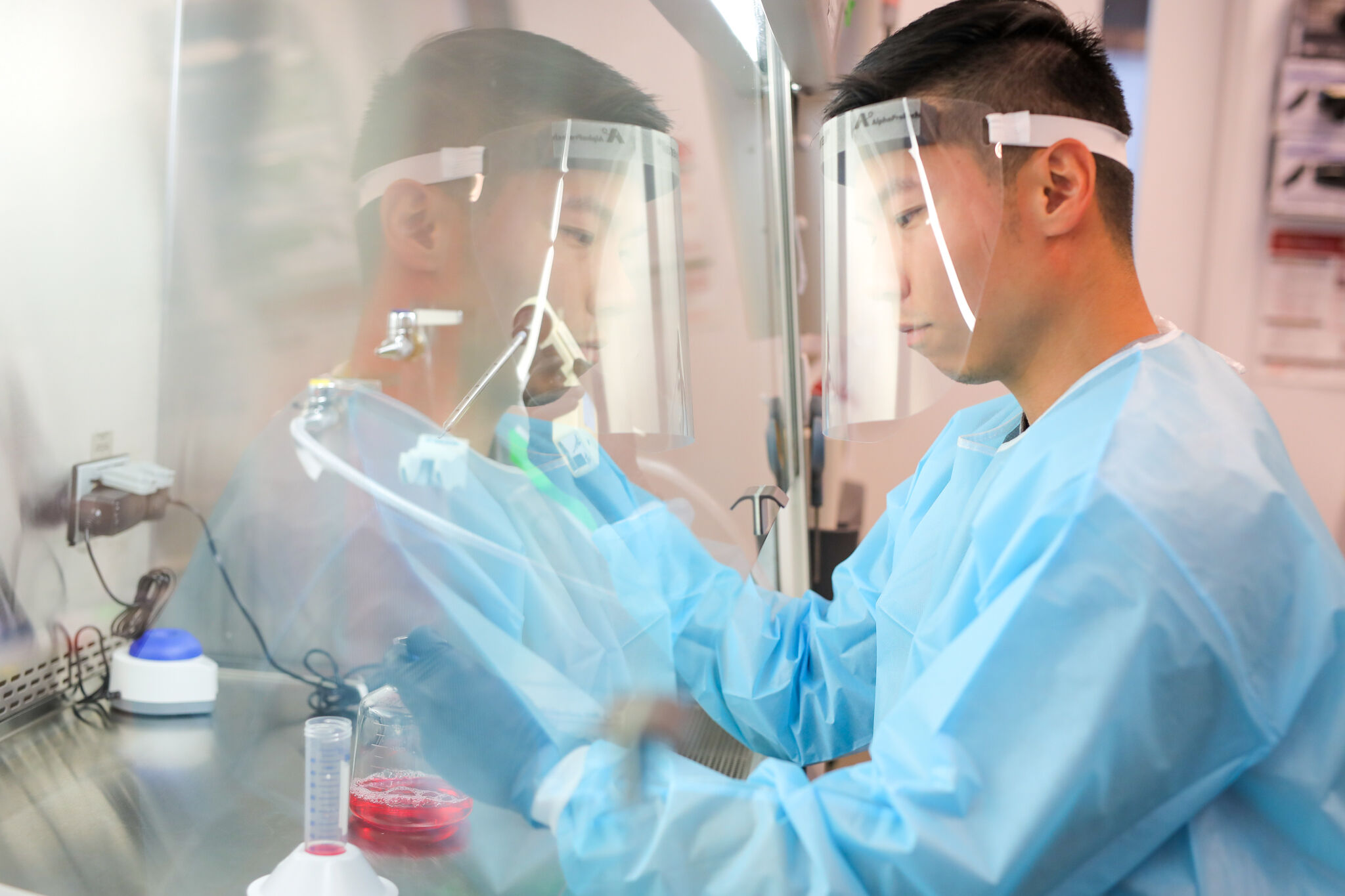When immunologist Jui-Lin Chen, 32, first decided to specialize in research for an HIV vaccine, he wasn’t wholly self-aware of his underlying motivation. It was early in his career, and although Chen was already out as gay, he still harbored shame around his sexuality.
“Looking back, I think I just wanted to do something related to myself and the community that I belong to, but I was in denial,” Chen told LGBTQ Nation. “Before, I guess I felt ashamed of being gay. But after years of doing this work, I finally sat down to think about why. I talked to my friend and realized there’s nothing to be ashamed about.”
As an early-career immunologist, Chen represents the future of medicine, a historically homogeneous STEM field. His innovative research aligns with his ethos of dismantling stigmas about queer people and HIV, both in his discipline and society at large.
Born and raised in Taipei, Taiwan, Chen relocated to the United States in 2017 to earn his Ph.D. from Duke University. He is currently a postdoctoral research fellow in pediatrics at New York’s Weill Cornell Medical College, where he and colleagues explore the use of nanomaterials to research the elusive HIV vaccine.
Never Miss a Beat
Subscribe to our newsletter to stay ahead of the latest LGBTQ+ political news and insights.
Duke University’s Dr. Joel Collier, one of Chen’s mentors, pioneered the study of nanomaterials. In vaccines, they may help increase immunity against a target pathogen and stabilize antigens. According to Chen, the novel technology has become increasingly popular in immunology circles over the past decade.

Although the HIV/AIDS pandemic began more than 40 years ago, scientists have yet to develop an effective vaccine against the virus. HIV quickly mutates. An effective vaccine needs some mechanism to induce immunity “against all the viral strains affecting humans,” Chen said. That’s a very tall order — but in theory, nanomaterials could help.
Anyone can get HIV, but its association with queer sexuality, heavily stigmatized in the 1980s and 90s, delayed the U.S. government from investing in HIV research and prevention.
In 1990, after years of urging from HIV/AIDS activists, Congress finally allocated $220.5 million in federal funds toward HIV care and treatment. Though scientists have made substantial progress, the stigmas originally associated with HIV still have ripple effects today. These negative perceptions impede HIV interventions at every step, from prevention to treatment.
Related:
Republicans have delayed over $1 billion in funding for a critical HIV prevention program
The delay comes as a result of backhanded Republican maneuvers and abuse of bureaucratic processes.
Fortunately, that legacy continues to evolve in real-time. Newer technologies, such as long-acting, injectable PrEP (pre-exposure prophylaxis), are advancing the future of HIV prevention — and Chen’s research for an HIV vaccine with nanomaterials could follow.
An HIV vaccine has yet to be tested for efficacy in monkeys or humans, so its viability is still uncertain, Chen said. However, clinical trials in mice and rabbits show some promise.
“We’ve found that this type of vaccine can induce an antibody response to different HIV strains, which potentially can create a protective effect against multiple strains,” he said. “That’s the progress we’ve made.”
A global perspective for an HIV vaccine

In the U.S. and other developed nations, PrEP is already an effective, accessible preventative tool for people at high risk of HIV infection. However, a vaccine could revolutionize HIV care in other parts of the world where PrEP isn’t as accessible or cost-effective.
That’s why Chen is specifically researching a pediatric HIV vaccine. This mode of delivery would be ideal for children in geographic regions like sub-Saharan Africa, where young people have an elevated risk for HIV infection but lack consistent access to medical care.
In addition to his vaccine research, Chen writes a science blog called The Immunologist. He created the platform to make accurate science writing more accessible to the general public. Most scientific papers appear behind a scientific journal’s online paywall and, when accessed, often contain dense technical terminology.
“The accessibility of science no for the general population is really important, and I found it even more important during the COVID-19 pandemic,” Chen said. “There was a lot of misinformation and conspiracy theories flying around on the internet.”
According to Chen, there is still plenty of homophobic stigma and misinformation surrounding HIV. Although his colleagues in HIV research understand the virus, he has encountered an immunologist outside of his niche who harbored negative perceptions of people living with HIV, questioning why he’d want to research HIV.
Chen stood his ground and hopes that his openness as a gay immunologist will help promote diversity and inclusion in the profession.
A recent article in The Journal of Immunology indicates that immunologists have an innate understanding of the importance of diversity, at least on a biological level. Our health and disease resistance depend on an array of “cells, physiologic pathways, and molecules that interface with every organ system.” Similarly, scientific progress requires the synthesis of disparate ideas — and the participation of diverse problem-solvers with varied perspectives.
Immunology as a field, though, has plenty of room to grow, and representation alone won’t solve the hurdles that marginalized LGBTQ+ scientists routinely encounter on the job, such as harassment and career limitations.
Chen has witnessed firsthand how homogeneity and stigma can harm individual immunologists. When he was pursuing his Ph.D. at Duke, one of his classmates — who is also gay — left because he “didn’t feel welcome” in such a conservative environment.
Years later, “I still feel really upset that he had to leave the program,” Chen said. “Your sexuality shouldn’t affect your productivity as a scientist, and it shouldn’t be considered as a factor to whether or not you can stay at an institution.”
As a gay researcher, Chen has experienced the societal impact yet recognizes science as an efficient equalizer.
“To some degree, the stigma is still there, and we still need to work on it,” Chen said. “HIV is just a disease. It’s no different from COVID-19, the flu, cancer, or any other disease we have to deal with.”
Related:
Another person cured of HIV with risky bone marrow transfer
To date, HIV has been eliminated in five patients who have received bone marrow transplants to treat cancer.
















